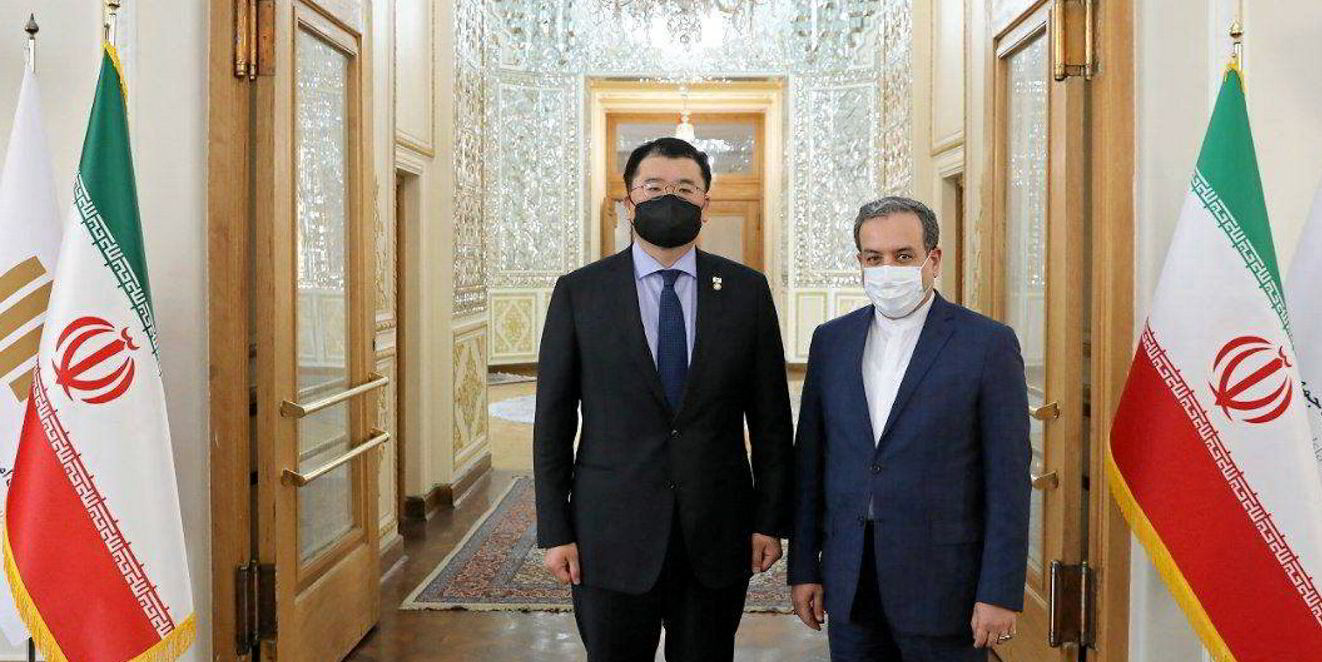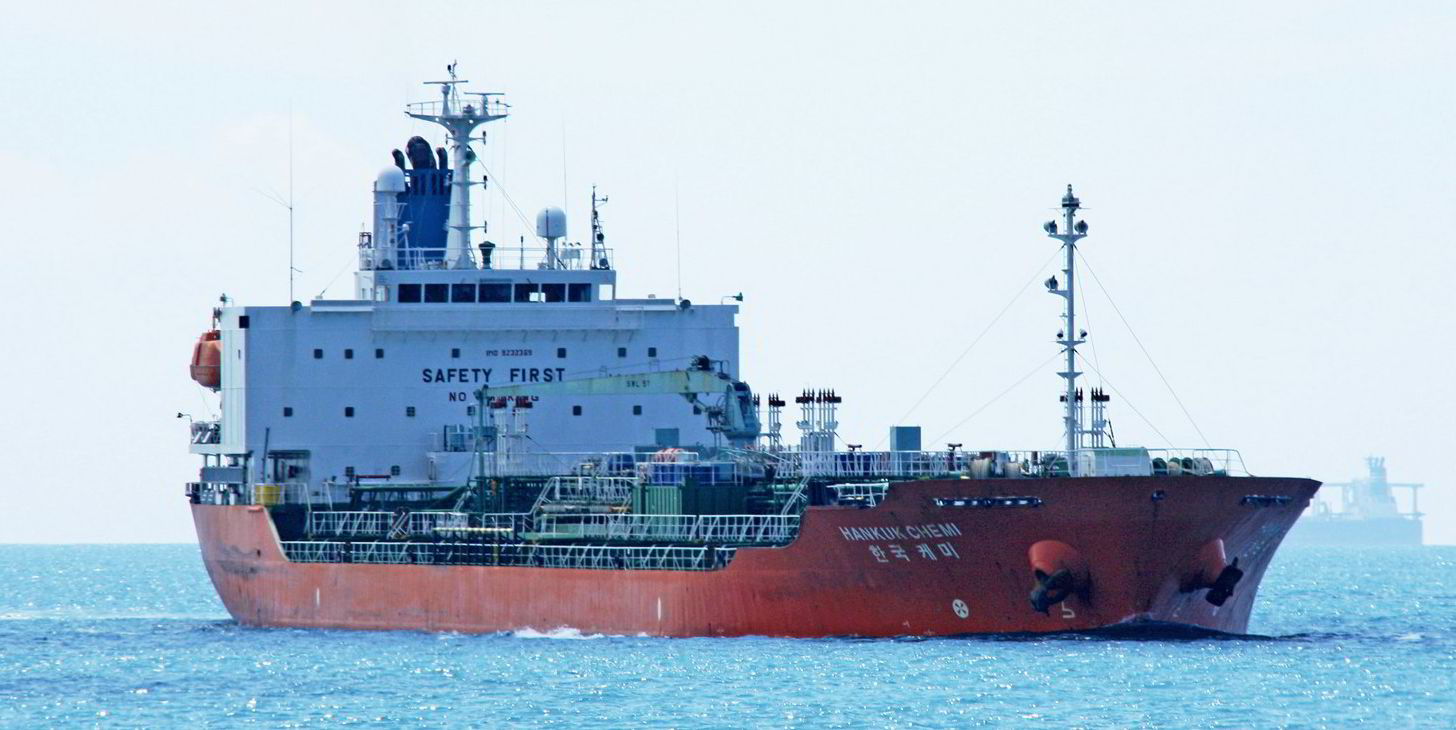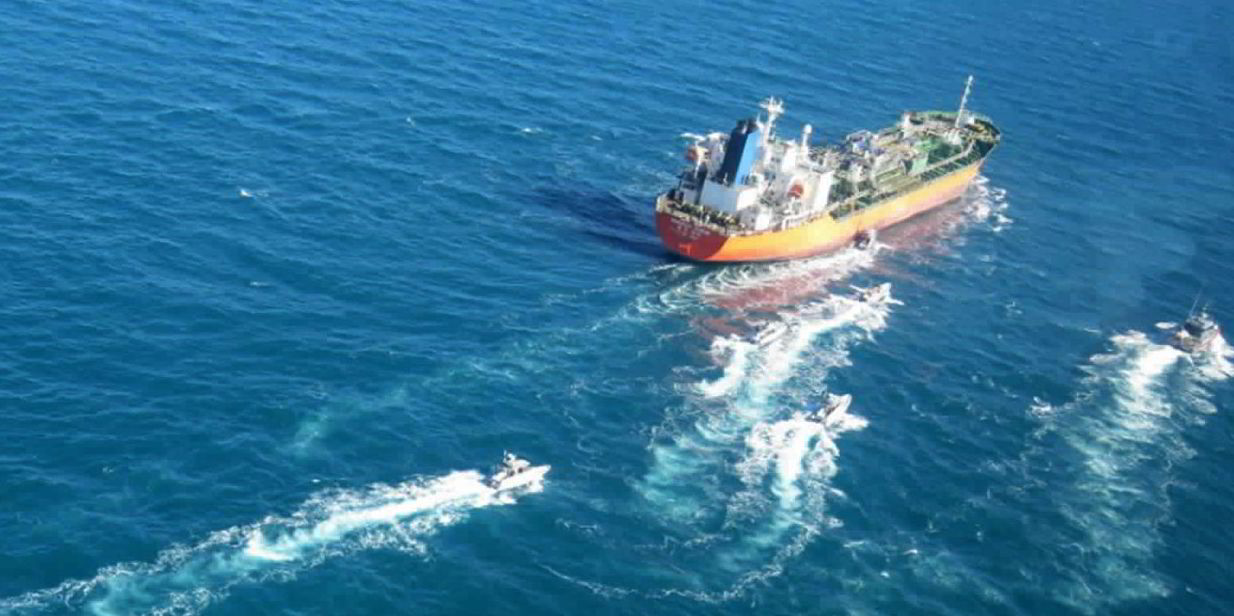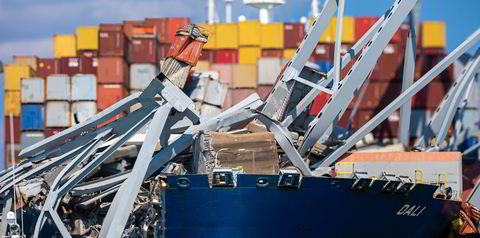The chances of an early release for a South Korean chemical tanker detained in Iran earlier this month show little progress.
A diplomatic team from Seoul has left Tehran for Qatar after three days of high-level meetings in the Iranian capital, which look to have achieved little.
However, the two nations said they will continue talks about the release of the 17,400-dwt chemical tanker Hankuk Chemi (built 2000), according to South Korean media.
“Through multi-faceted consultations with leading Iranian officials, South Korea and Iran will work together to craft swift, constructive solutions to the pending issues based on the long-standing friendship between the two countries,” South Korea’s foreign ministry said in a press statement.
Iran said it detained the Hankuk Chemi on 4 January 2020 due to “environmental pollution”, but the operator of the ship, which has five Koreans and 15 other crew members aboard, has denied the allegations.
Choi Jong Kun, South Korea’s first vice minister of foreign affairs, said it was “unacceptable” that Tehran had still not presented any evidence to back its claim about the sea pollution, the Yonhap news agency reported.
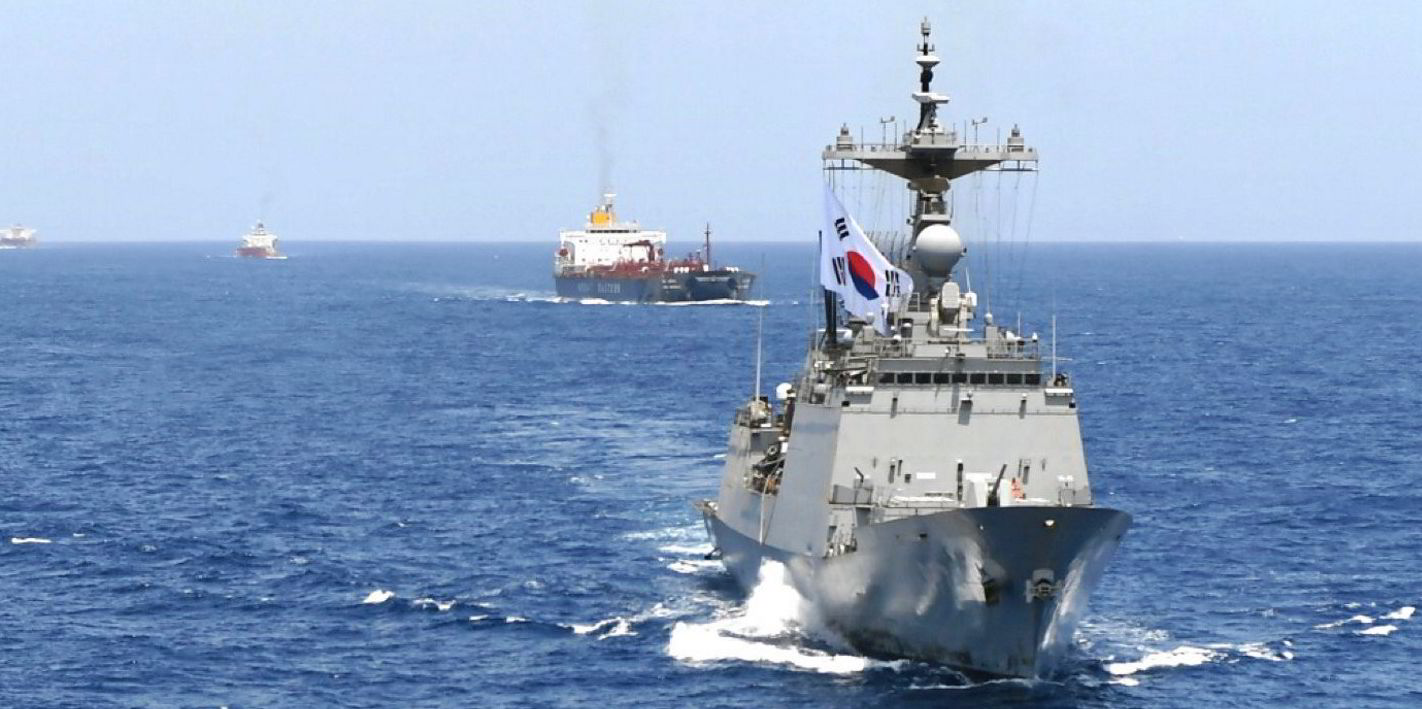
He urged the Iranian side to “swiftly release the ship and its crew, while requesting it guarantee the sailors’ safety and right to necessary support”.
Seyyed Abbas Araqchi, Iran’s deputy foreign minister for political affairs, continued to stress that the tanker had been arrested over “technical considerations and environmental pollution hazards”, adding that the Iranian Judiciary had begun dealing with the case.
Araqchi said Iran’s claim that South Korean banks had “illegally blocked” its currency resources for nearly two-and-a-half years was a separate matter, and called on Seoul to resolve the issue.
Araqchi said via a foreign ministry statement that Iran believed the freezing of its financial assets in South Korea resulted from “the Seoul government’s lack of political will rather than the cruel sanctions imposed by the US”.
He said South Korea needed to make “serious efforts to find the necessary mechanism for resolving the issue”.
Despite the increased stand-off between Iran and South Korea and heightened threat levels in the region, one analyst told TradeWinds that the Asian nation is heavily reliant on the region for its crude supplies.
Ralph Leszczynski, head of research at Banchero Costa, said: “It would be pretty difficult for South Korea to avoid importing from the Middle East, as the region currently accounts for two-thirds of their crude oil imports”
“During 2020, South Korea imported 141m tonnes of crude oil, down 7.3% year-on-year. Of that, 91.6m tonnes — or 65% — was from the Arabian Gulf.”
Last year, South Korea imported no crude from Iran. But Iran accounted for almost 10% of South Korea’s crude imports back in 2017.
South Korea has been strictly complying with US sanctions on Iran.
In contrast, imports of crude from the US to South Korea have been growing very fast in recent years and last year accounted for 9.5% of South Korea’s total imports, according to Leszczynski.
“However, shipments of crude from the US to South Korea declined by 30% in 2020, whilst shipments from Saudi Arabia were up almost 8%,” he said.
